Amid the Noise, Make the Most of Twitter by Using it - Not Being Used By It
Mastodon is a cul-de-sac, not a crossroads (yet); here are more ways Twitter still matters if you don't rely on your feed
Please subscribe to my Sustain What project, contributing financially if you can afford to so that most of the content is open to those who can’t.
Twitter right now is a mess at a high level, with Elon Musk’s rushed blue-checks-for-cash project fueling a crush of thousands of fake accounts, ranging from malicious to humorous to dangerous (fake National Weather Service “verified” accounts!). The company’s financial viability hangs in the balance.
Even so, as I tweeted and posted elsewhere, I'm sticking with Twitter. This not just because Mastodon - for me at least - remains a clunky cul-de-sac, not a globe-spanning societal crossroads.
[Insert 11/14 - To be clear, I have set up shop over at Mastodon.green/@revkin, but still see huge impediments there. Do explore this thread on how to migrate there by tech freedom fighter Evan Greer.]
I’m sticking with Twitter because it remains invaluable in my quest to identify and help refine and spread paths to progress. Let me know what you think.
To me, it's all about how you use it. Passive use is hell.

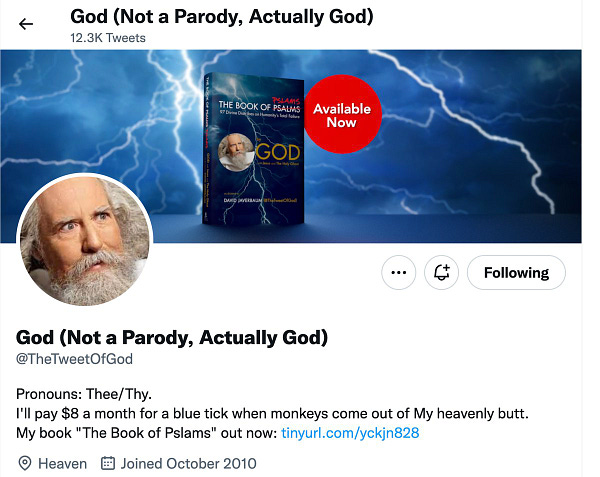

Here’s more on that point.
If you rely on your feed, what you see is what you deserve, essentially.
When you open the app (along with Facebook, Instagram, TikTok and the rest) you confront a programmed slice of what’s out there. Passive scrolling is a programmed slide into distraction, which is particularly dangerous for me given my ADHD brain.
Here are ways around that trap. Flip to an active approach.
Search
I’ve long encouraged students and others to compare search results on Google and Twitter on issues they care about. Both are useful. But Google points to information, while Twitter points to people who could become guides or collaborators. As I tweeted a week or so ago, try this with some question that keeps you up at night. My semi-random example was “coral conservation Caribbean.”
Here’s a tweet with just a few of the dozens of people I’ve “met” here, including some I’ve ended up meeting face to face:

Lists
Twitter lists create a cleaner feed on issues you care about. Curate your own or find ones you like. Here are some I've built over the years: https://twitter.com/Revkin/lists. What are your favorites? Please post links in the comments.
Innovate
I have to point to the tireless work of Jim Moffitt (@snowman), a Twitter engineer and developer relations staffer (I believe he’s still employed as of this weekend) who for years has helped build the platform’s utility in emergency response and responsiveness. In a 2016 post he explained the prime point:
At its core, Twitter is a real-time public broadcast channel. These characteristics make Twitter a natural platform for public safety communication and early-warning systems. During serious state-wide Texas rains and flooding over the 2015 Memorial Day Weekend, Twitter organically emerged as the go-to communication channel for the United States Geological Survey (USGS) and other federal, state and local agencies. As widespread power outages occurred, Twitter became an essential source for up-to-date meteorological data and agency announcements.
I got to know him after watching an illuminating Yale Program on Climate Change Communication seminar on using Twitter’s API for climate impact:
Moffitt posted a fantastic Google Doc that leads to deep dives on a host of case studies from Jakarta flash flooding to the Texas Freeze.
Beyond Twitter
The practices I describe above of course are not limited to Twitter.
Success comes in gauging which platform is the best fit for the need. For Kalain Hosein (@kalainh), a weather anchor and journalist in Trinidad and Tobago, Facebook is key because Trinidadians go there (and to Whatsapp) when extreme weather strikes. We talked about this in my Sustain What webcast Friday with journalists and experts at the climate talks in Egypt. He’s at the treaty talks thanks to a fellowship through the Earth Journalism Network.
We talked about the issues on the floor in the meeting halls, but also about how he communicates with his audiences back home. Along with his work for the CNC3 TV network and The Guardian Trinidad & Tobago, in 2014 Hosein founded an online weather information portal, accessed mainly through Facebook. He described the project and its impact in our webcast.
Kalain Hosein
Social media is incredibly important, especially in times of crisis. A lot of people, specifically in Trinidad and Tobago, when it's raining, they flock to Facebook…. [Twitter is] a valuable source of information. I mean, a lot of journalists use it to disseminate information on breaking news. In Trinidad, Facebook is king….
I founded the Trinidad and Tobago Weather Center in 2014 - separate from my current job. What that managed to do is build a following of everybody on the ground. It has a following of around like 180,000, maybe a little bit more, on Facebook…. During high impact weather events, we see like a reach of up to 2 or 3 million. What that has allowed me to do is when there's an inclement weather event, people will send videos and pictures and reports of these are the areas that are flooding. And then my team would be able to collate all of those reports and post it onto the social media platforms to inform other people of what exactly is going on across the entire country. I can tell you certainly that this platform has been used by journalists, by people who can meet across the entire country, drivers, parents who are deciding whether they want to send their children to school. It really has been used by a lot of people across many different sectors, including the government.
The more of that kind of innovation, the better.
What else is out there? Please weigh in with what you’re seeing.
Finally, Laugh


My Twitter thread this morning, and this post, grew out of laughter. Seeing all the blue-check insanity, including from @Jesus, I checked in with God, meaning the 6-million-plus-follower @thetweetofgod account. There’s also a shadow account on Mastodon - @TheTweetOfGod@mastodon.social. But nothing beats the original.
Laughter is a great tonic for the hate and toxicity. But it can also be a form of activism.
Try Laughtivism
“Laughtivism,” perfected over the last two decades by The Yes Men prankster team, can also be an effective path to confronting the powers that be. They even have posted tutorials on this.
If you missed Igor Vamos, one of the Yes Men founders, on my recent Sustain What webcast on extreme climate protests, here’s your chance to catch up!
There’s been a massive flood of laughtivism pummeling Elon Musk of late.
The more the better.
So what do you think? Are you with me? Or are newsletters, Google and alternatives like Mastodon sufficient?
Plenty of other people share my sense of hope - although, as with climate change, the best way to think of the word hope is as a VERB. Do the work.
Here’s the food journalist and author, and now Climavores podcaster, Tamar Haspel:



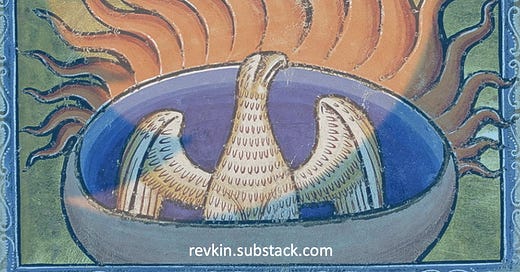



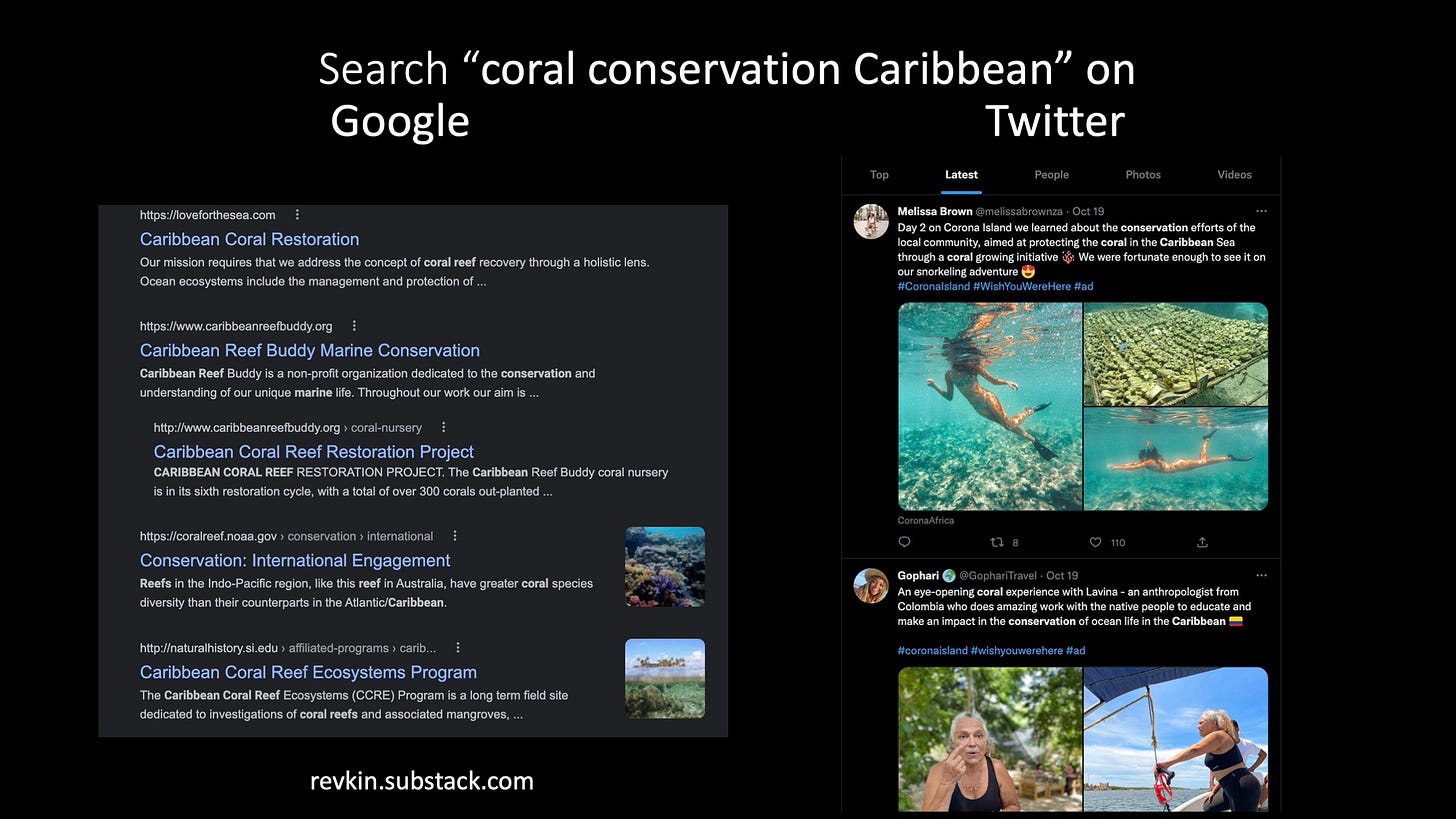
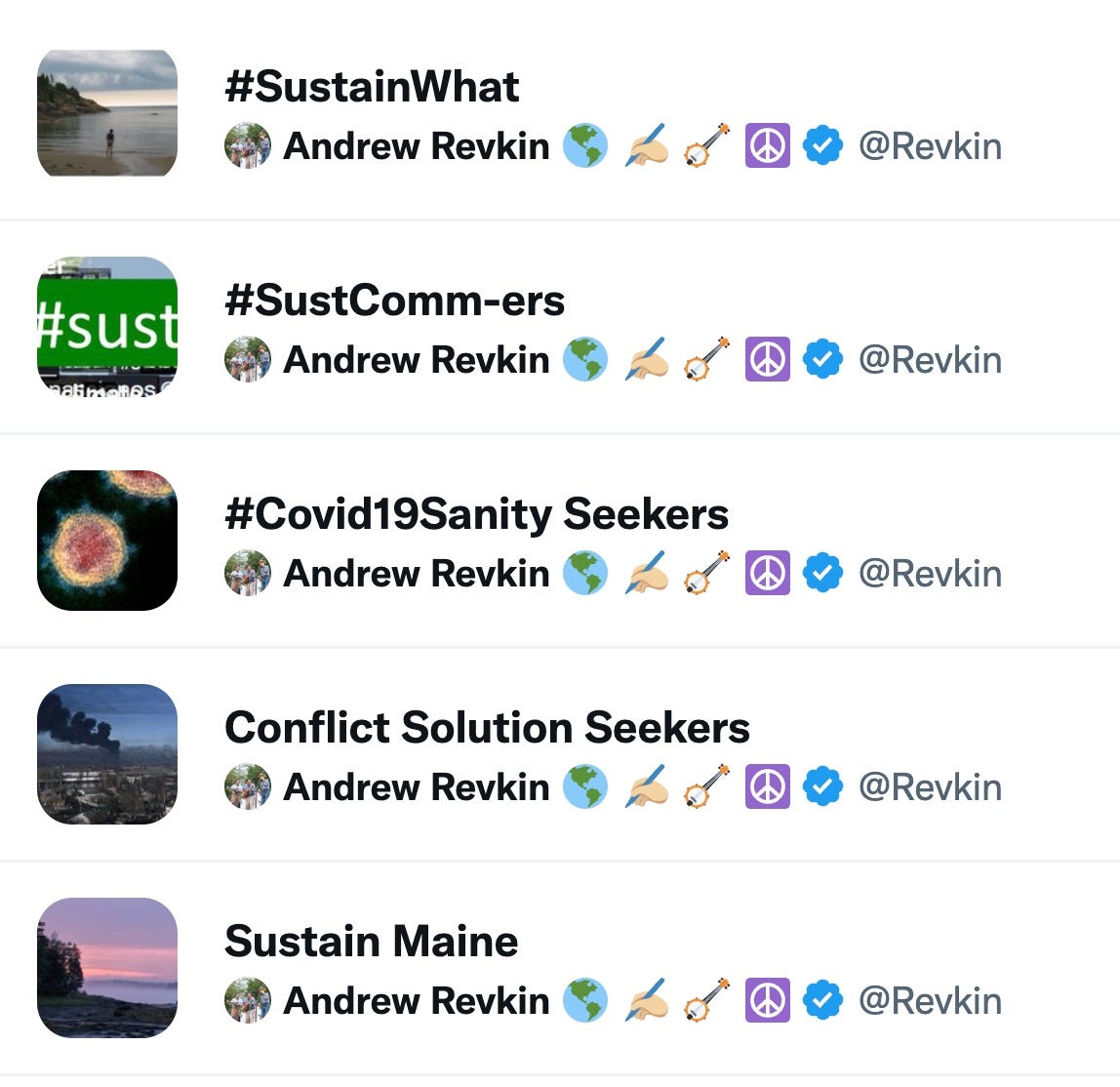
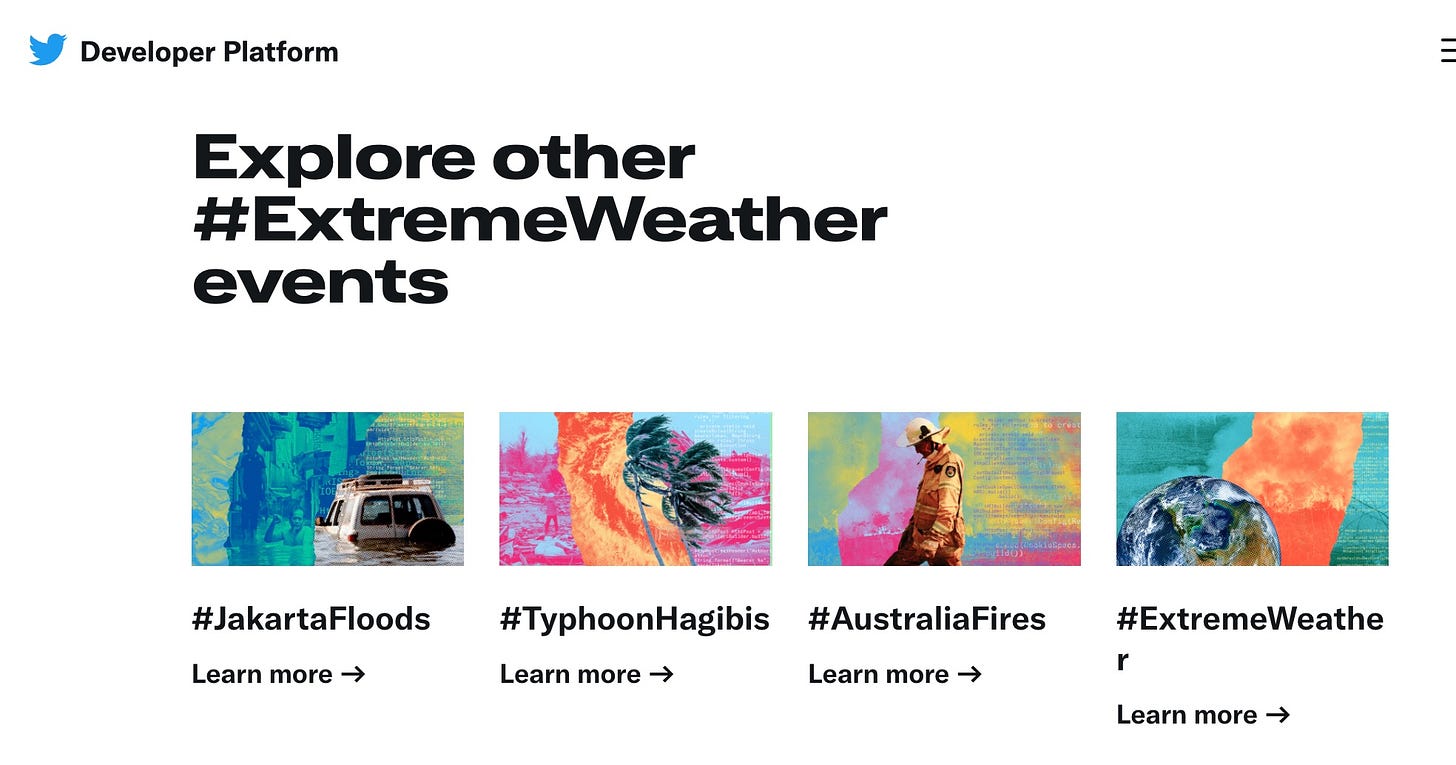
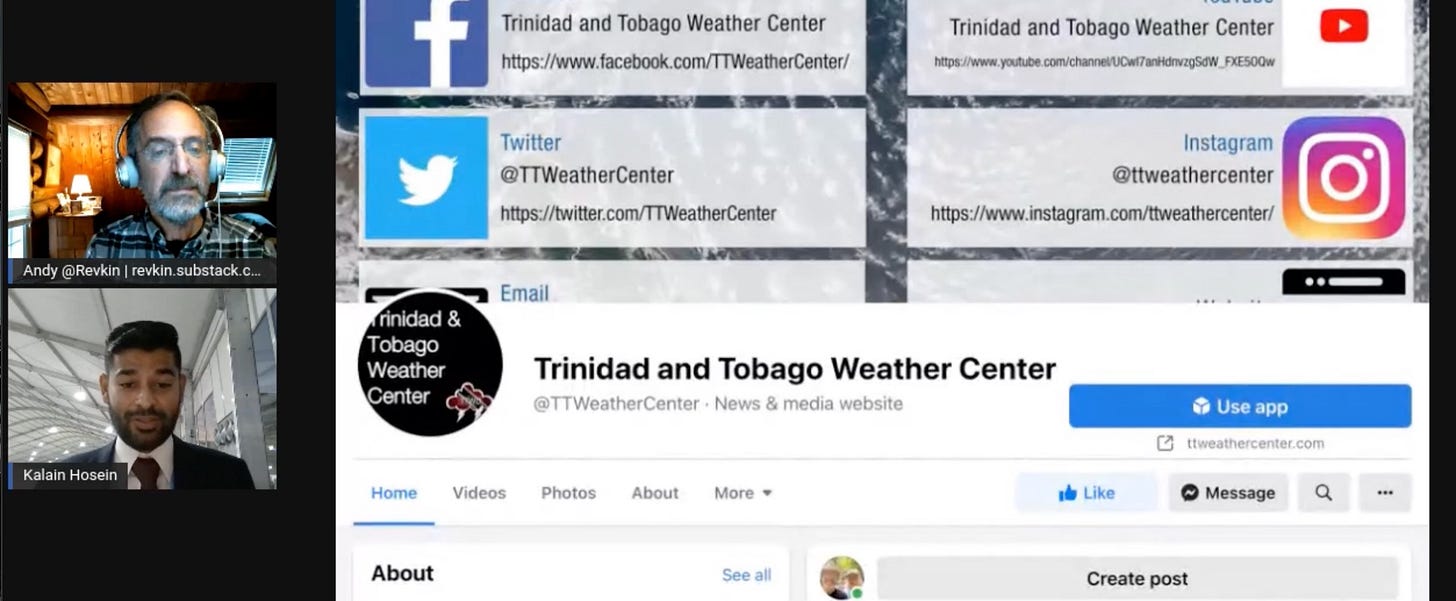
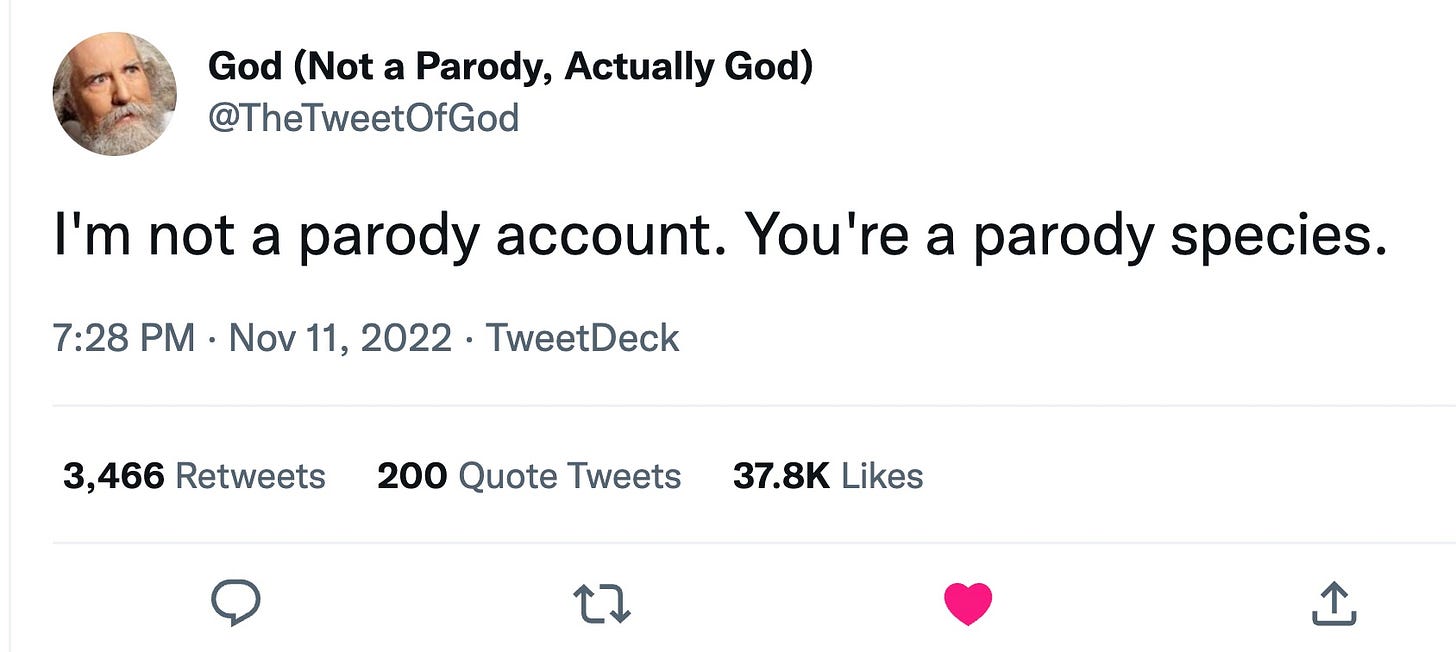
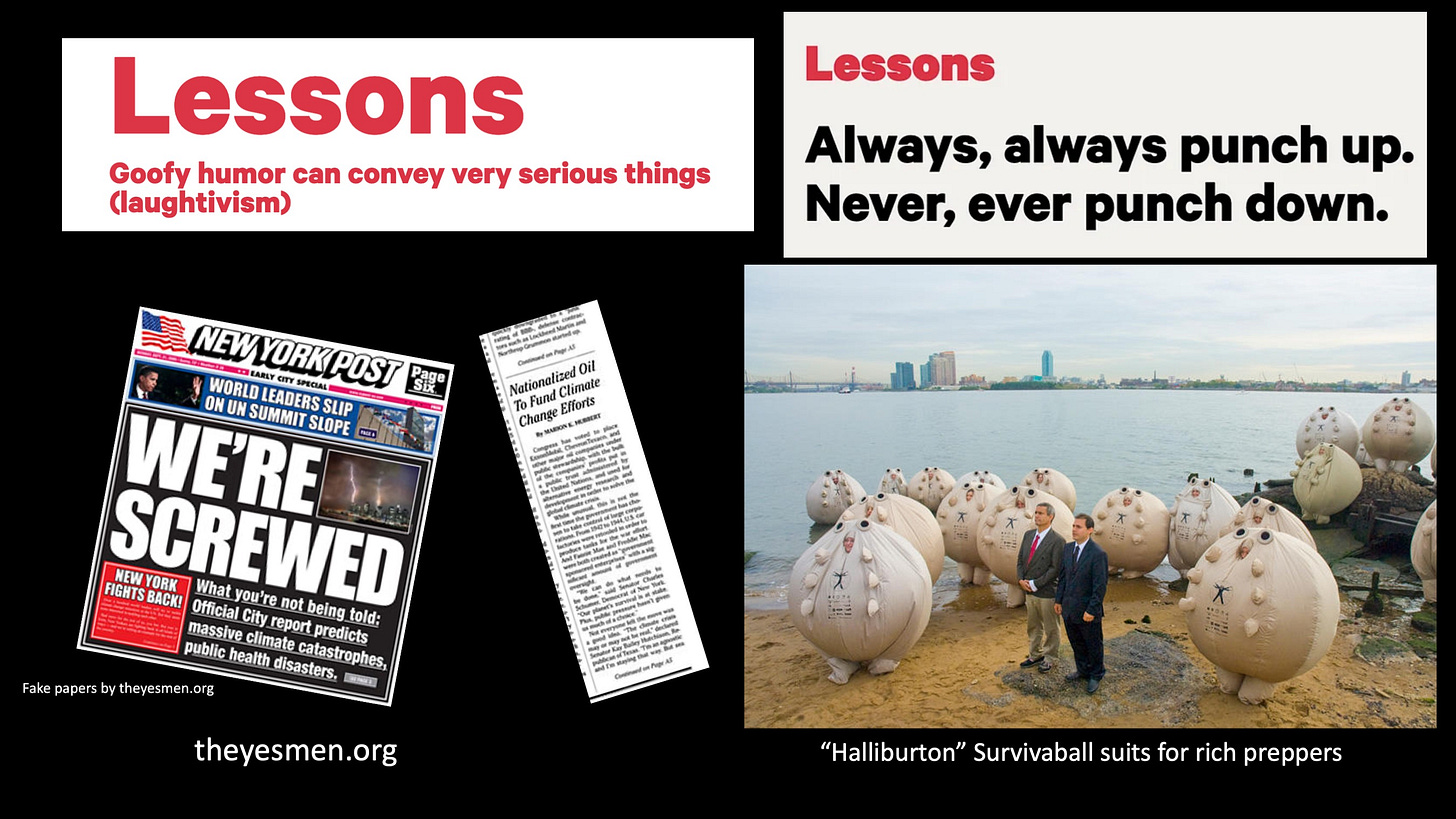
The Twitter video opened a new universe for me. Talk about an invaluable tool for mining real leads in an infinite rabbit hole. 👍🙏💚
The Fediverse and Mastodon servers have been struggling to keep up with all the new people joining in the last week, especially after the extra craziness of Twitter management during the week. This article may be superseded soon by Twitter collapse.